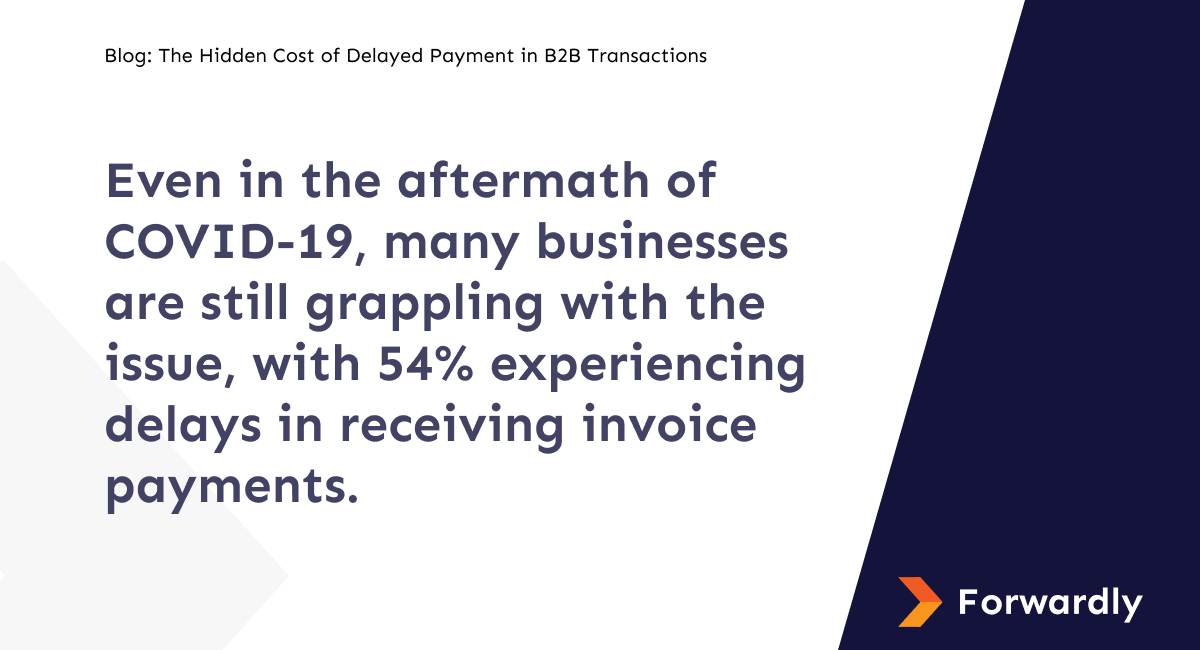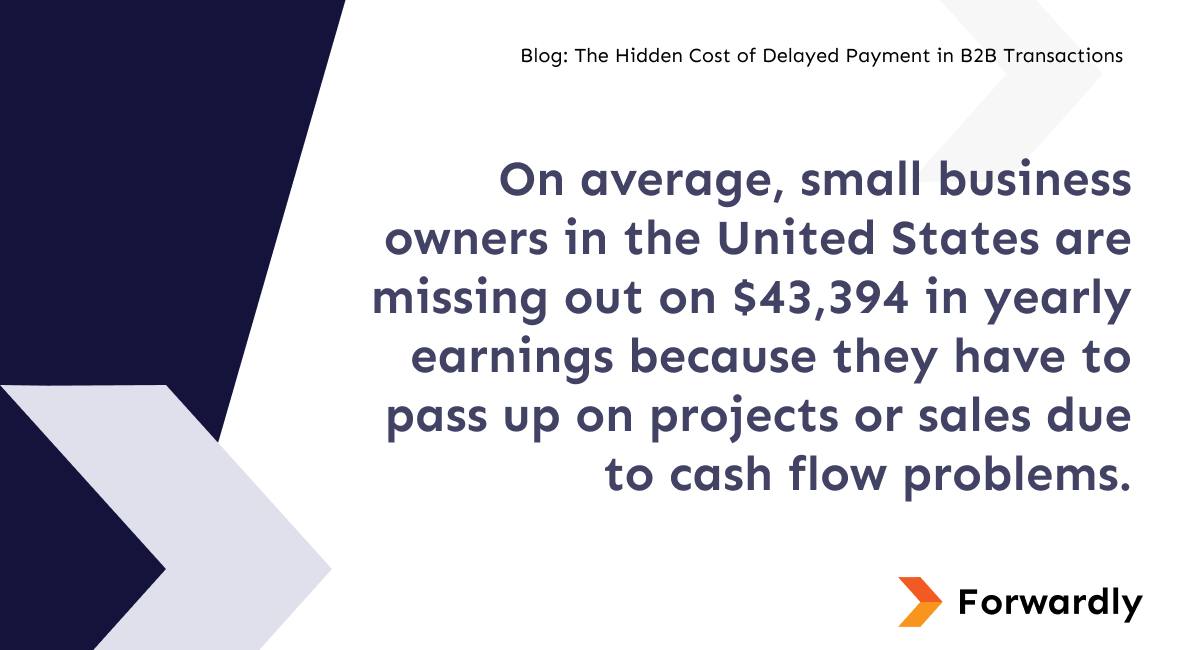Late payments can be a real headache for small business owners like yourself. When you’ve worked tirelessly to deliver your products or services, and now it’s time to get paid. But instead of a timely payment, you find yourself waiting, and waiting, for the funds to arrive. It’s frustrating, to say the least, and it can throw your financial plans into disarray.
So, why are late payments such a pressing issue for small businesses? Firstly, they disrupt your cash flow. When payments are delayed, it can become a juggling act to cover your operational expenses, pay your own suppliers, and keep the lights on. It’s like trying to navigate a maze blindfolded – stressful and unsustainable.

Delayed payments: A roadblock for small businesses
Understanding delayed payments
Delayed payments occur when a business extends the time it takes to settle an invoice or payment owed to another business. This practice can significantly disrupt the typical transaction cycle and impact businesses in various ways. Even in the aftermath of COVID-19, many businesses are still grappling with the issue, with 54% experiencing delays in receiving invoice payments.
Cash Flow and Delayed Payments
Cash flow is the lifeblood of any business, especially small enterprises. It represents the money coming in and going out of the company and is important for daily operations, covering expenses, and seizing growth opportunities. While typical transaction cycles involve a smooth and timely exchange of goods and services for payment, delayed payments throw a wrench into the works. They disrupt the established rhythm of business operations and can lead to numerous challenges.
Delayed payments can cause a domino effect. If one business doesn’t get paid on time, it might struggle to pay its own bills and employees, creating financial stress. A study from Intuit found that out of every 5 small business owners with cash flow problems, more than 2 of them (43%) have struggled to pay their employees on payday. This stress can spread to other companies that rely on the first one, creating a chain reaction of problems. It’s like one person in a rowboat not paddling as they should, causing the whole boat to veer off course.
The impact of delayed payments
There can be significant consequences when small businesses experience delayed payments.
Cash flow disruption
Delayed payments create gaps in a business’s cash flow, which can be compared to having periods of low or no money coming in. This can make it challenging for businesses to pay their bills on time, buy the supplies they need, or invest in making their business bigger.
Limited working capital to grow
Small businesses need working capital to expand. When payments are late, it means there’s less money to work with, making it tough for small businesses to grow. On average, small business owners in the United States are missing out on $43,394 in yearly earnings because they have to pass up on projects or sales due to cash flow problems.
Strained relationships
Late payments strain relationships with vendors, who may start demanding faster payment terms or even refuse to continue doing business. A report found that 73% of procurement professionals said late payments strain business relationships, and 59% noted that vendors have reduced or stopped offering discounts due to late invoices.
Lost productivity
One of the major issues of late payments is that they waste a lot of time and resources. This means that employees have to spend time dealing with late payments instead of doing their regular work. For instance, if a business has to constantly follow up with vendors who haven’t paid their bills on time, it takes away from the time they could be using to make new products or provide better customer services.
Market reputation
Consistently late payments can damage a business’s reputation, making it less appealing to vendors or partners. Late payments can harm your business in two important ways. First, they can hurt your credit score and reputation. When you consistently pay bills late, it can become harder and costlier to get loans or funding later on. Second, if other businesses notice that you’re frequently late with payments, they might be less eager to work with you.
Increased administrative burden
Late payments can place a substantial burden on a business’s Accounts Receivable (AR) and Accounts Payable (AP) teams. The AR team must dedicate valuable time and effort to chasing overdue payments, managing cash flow disruptions, and reassessing customer credit risk. On the other hand, the AP team faces challenges in maintaining vendor relationships, handling late fees and interest charges, and accurately forecasting cash flow when payments are consistently delayed. These added responsibilities can increase their workload.
Late fees and interest rates
When your business gets paid late, it can mess up how you pay your bills. This might make you pay extra money in late fees and interest charges. Your AP department has to handle and keep track of these extra costs as well.
Do you see now how these problems can be a big concern? When 93% of companies deal with late payments, it’s clear that many businesses are having a tough time because of these issues.

How Forwardly Can Help
Forwardly understands the challenges that small businesses face due to delayed payments. Here’s how it can make a difference:
Instant Payments
Forwardly makes sure you get your money right away, so you don’t have to wait around. Late payments can cause big problems for your business, but with Forwardly, you can get paid in 60 seconds. Yes, you read that correctly! We use the RTP Network and FedNow Service to move your money super-fast.
Receiving instant payments with Forwardly only costs 1% plus $1 per transaction, with a maximum cap of $10. If your bank doesn’t support these networks, we process your payment as a Same-Day ACH free of cost. You can get your money quickly and easily with Forwardly.
Auto-Reconciliation with QuickBooks Online and Xero
Forwardly integrates seamlessly with popular accounting software like QuickBooks Online and Xero, making it easier to manage finances and reconcile payments for small businesses in the United States.
Automated Payments
Forwardly makes it easy to set up automatic payments. This means you don’t have to worry about chasing people to pay their bills. With auto payments, your bills get paid without you having to watch them closely or keep reminding anyone. And the best part? This feature doesn’t cost extra, and both parties can disable it whenever they want. This takes away some of the stress and lets your team focus on more important things, like growing your business and keeping customers happy.
Cash Flow Forecasting
Forwardly’s cash flow forecasting tool empowers businesses to understand their financial well-being and make smart decisions to maintain a consistent cash flow. It allows business owners to access crucial cash flow information without the need for spreadsheet work. With the ability to see rolling cash flow predictions up to a year ahead and obtain a real-time snapshot of their cash position in seconds, entrepreneurs can make informed financial choices confidently.
Get started today
The consequences of delayed payments can be severe, affecting cash flow, growth, and relationships. To thrive in this competitive environment, small businesses need a solution like Forwardly, which offers free same-day ACH transfers and instant payments at affordable price.
So, don’t let delayed payments hold your business back. Get started with Forwardly today at no monthly fee and prioritize instant payments for a healthier bottom line and stronger partnerships. With Forwardly, you can take control of your cash flow and ensure your small business thrives in the dynamic world of B2B transactions.
 Back to Blog
Back to Blog


